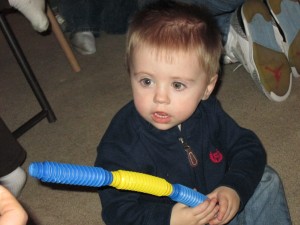 According to the National Institutes of Health, one out of every four emerging adults (between 18-25) will experience depression in some form (some seasonal, short-term, or long-term). In our Facebook world, everyone seems happy and active, but hidden below those pretty profile pics can be a world of hurt and pain.
According to the National Institutes of Health, one out of every four emerging adults (between 18-25) will experience depression in some form (some seasonal, short-term, or long-term). In our Facebook world, everyone seems happy and active, but hidden below those pretty profile pics can be a world of hurt and pain.
When an emerging adult is dealing with depression, they are not the only ones to suffer. Parents carry a great weight of responsibility during the battle. Many wonder what they can do to help.
I recently interviewed an emerging adult about their struggle, and how their parents helped them through their battle with depression. The writer wished to remain anonymous partially because of the stigma that still exists within the church over those who struggle with depression. Unfortunately, the judgement of others leads people to isolate themselves, and aggravate the problem.
I hope this person’s words can encourage you and your emerging adults.
How long have you been struggling with depression?
I’ve been dealing with clinical depression since I was 15 (7 years now). I don’t know what for sure triggered it, but depression does run in the family. The roughest years were when it first started (age 15), my senior year of high school, and the first two years of college.
How did you get better?
A lot of my depression was fed by my high level of perfectionism. If I didn’t meet my expectations, it would cause me to feel down. I finally realized that I couldn’t continue as I was (sophomore year in college at this point) and took some time off school to give myself a break and focus on what I needed. I spent the first three months of my first semester off sitting on my butt and doing absolutely nothing. This was just what I needed – emotional rest, physical rest, spiritual rest. I hadn’t experienced any of that for far too long. During this rest, I saw a therapist, took medication, and had a good support group. These things all contributed to the healing process and I slowly went upwards from there.
How did you parents help in the process?
My parents did their best to educate themselves on depression and tried to be understanding even when they really didn’t understand everything. Over time, they learned that it was ok to not always understand but just to accept what I was feeling was valid and deeply affecting me. They also learned to ask me what I needed from them rather than try to guess – which was the best thing they could do. I knew what I needed, but was unable (or uncomfortable) to ask for it.
They served as an advocate for me in high school when teachers didn’t understand why I wasn’t getting better. My dad researched and then personally called a therapist who wasn’t taking any new clients at the time, and at the end of their conversation she was willing to see me. My parents went to bat for me in the areas that I was too exhausted or felt too hopeless to fight for myself.
 In what ways were your parents NOT helpful? or even hurtful?
In what ways were your parents NOT helpful? or even hurtful?
The hardest part for my parents was that for a long time they didn’t know how to help me, and I know that made them feel so impotent in the face of watching their daughter struggle with so much pain. At times, they would enter the “fix-it” mode, which is the last thing I needed from them. Depression isn’t a problem that has a simple solution and then it’s “fixed.”
Sometimes they would get really frustrated with me when they didn’t understand my lack of motivation and physical energy to do what they thought was a simple task; they just couldn’t empathize, because they hadn’t experienced it. Feeling their frustration and disappointment on top of my own (because I was already beating upon myself) led to many meltdowns. I know now they weren’t so much frustrated with me than at the situation, but I desperately needed steady patience and understanding and grace, because I had none for myself.
What advice would you give to someone who is currently struggling?
1. Know that you’re not alone—far from it!
2. Seek counsel from someone who has struggled successfully with depression; they’re great for understanding exactly what lies you’re telling yourself and helping you hear the truth when you can’t preach it to yourself.
3. See a therapist. I gained the tools I needed to battle the depression and come out healthy on the other side.
4. Try to give yourself grace.
What did you or your parents do that helped you through depression? Please share your thoughts to encourage others.







![girl-woman-hair-1276336-l[1]](http://www.earesources.org/wp-content/uploads/2013/09/girl-woman-hair-1276336-l1-203x300.jpg)



![bird-nest-tree-2028508-o[1]](http://www.earesources.org/wp-content/uploads/2013/10/bird-nest-tree-2028508-o1-300x300.jpg)
![arde-ardeaalba-egret-2476872-h[1]](http://www.earesources.org/wp-content/uploads/2013/10/arde-ardeaalba-egret-2476872-h1-300x300.jpg)

![tools-toolbox-basement-2028410-h[1]](http://www.earesources.org/wp-content/uploads/2013/09/tools-toolbox-basement-2028410-h1-300x300.jpg)
